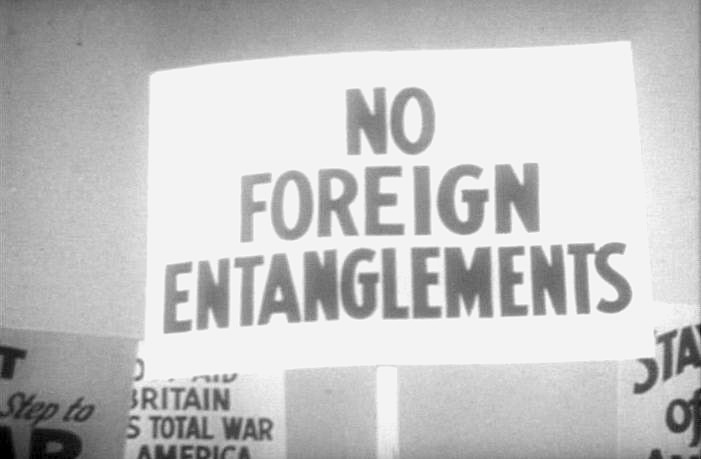The falling autumn leaves signal another season of drafting young Russian males for the nation’s compulsory military service. As the leaves depart from their trees, so do the young Russian males from their homes and families, both serving their ‘rite of passage’. The current draft is already in motion and will continue until New Years Eve. All male Russian citizens aged 18-27 will be scheduled for their 12 month term in the Russian military. This traditional recruitment dates back to the Russian Empire, when males had to serve approximately 20 years. Over the centuries, the term has shortened but was never terminated.
Articles 132 and 133 in the 1936 Soviet Constitution most accurately depict the motive for conscription. Translated, these articles read “Military service in the Workers’ and Peasants’ Red Army is an honorable duty of the citizens of the U.S.S.R… To defend the fatherland is the sacred duty of every citizen of the U.S.S.R”. The official welcome statement by the Russian Ministry of Defence does not stray far away from the original motive in 1936 asserting that, “Service in the Russian military is an important phase in every man’s life. Not only will you complete a great school of life, but you will also acquire many true friends, strengthen your physical and mental capability, and mature into a man… Duty, honour, service to your motherland – those are the most important motivations for military service… No doubt, serving in the armed forces is not a fun ride, no matter where you find yourself serving your country, but being a real man is being able to take the pain and hardship.”
“Служба в Вооруженных Силах — важный этап в биографии каждого мужчины. Здесь ты пройдешь не только хорошую школу жизни, но и приобретешь настоящих друзей, окрепнешь физически и духовно, возмужаешь… Долг, честь, служба Отечеству — вот главные составляющие мотивации военной службы.”
Approximately 75 000 out of 150 000 Russian men are thought to be dodging the draft annually, and in most cases, risk their lives doing so. Escaping the draft in Russia is a criminal offence and carries severe punishments under Article 328 of the Criminal Code, including: (a) a fine of up to $3200 or 18 months of wages, (b) term of arrest from 3 to 6 months, (c) imprisonment of up to 2 years, and (d) compulsory labor. In addition, it is not surprising to see drafting commissions seizing young men on the street, in the metro, or in the park, and often by force.
The European Parliamentary Research Service pointed out in a 2015 report, that although Russia is flexing its military muscles it is also facing many grave challenges. Contrary to what is presented during the Russian Victory Parade, the Russian military has a crippled military structure, reform failures, outdated weapons-systems and above all, a decrease in conscription and recruitment. Joris Van Bladel, Belgian researcher writing in Journal of International Affairs states in a 2010 article that 35% of young men do not wish to be in the military at all. 70% of men say that ‘dedovshchina’, a violent traditional hazing in the Russian military, is the main reason why they are fearful of serving.
During ‘normal’ dedovshchina initiation, new conscripts are forced to perform demeaning tasks imposed by senior peers and are in constant risk of, “illegal expropriation of passports and military IDs, extortion, degrading treatment, systematic and violent beatings, denial of medical care, and detrimental living conditions,” and some cases extend to forced labor, rape, prostitution, and murder. Van Bladel’s research indicates that, “although it has been a part of Russian military life for decades, dedovshchina has become more brutal in post-Soviet times”. Consequently, hundreds of young Russian males attempt suicide as a self-defence. In 2004, the Human Rights Watch reported on the consequences of dedovshchina through written archives and interviews with affected families. “Evgenii Grushko wrote to his mother that ‘if I can’t manage to run, I will do something to myself’… Andrei T. wrote to his mother that ‘this is my last letter to you, I’m going to hang myself.’”
In response to this barbarity, mothers of Russian recruits created a non-profit, non-government, public human rights organization called Mother’s Right Foundation (‘Pravo Materi’). Although created in 1989, it took Chairwoman Veronika Marchenko 4 years to finally get the Russian Ministry of Justice to acknowledge the organization and its main cause: “to protect the rights and interests of the parents whose children died in the Soviet and Russian army at peace time, including two Chechen wars and the KURSK submarine sinking”. As of 2013, the Mother’s Right Foundation has helped over 100 000 families, won over 75% of its cases and currently manages 345 volunteers.
Russian families are forced to resort to desperate measures to protect their sons from the draft. Russian males first attempt legal and formal exceptions to service, such as attending Civil University and Military education. For Russian high-schoolers, not being accepted into University may well mean a life or death situation, since University students are given the chance to delay their military service. Many students desperately try to stay in school for as long as possible until they are eligible to age out of the draft.
Iva Savic, from Columbia University, noted in his research that families try to collect sums of approximately $10,000 for lawyers who obtain medical exemptions from military doctors without any proof of medical condition. Keeping in mind that the average salary in Russia is $570 per month, many who cannot acquire such sums to bribe officials, unfortunately, turn to self-mutilation. However, to fill their quotas, drafting commissions have been loosely following regulations, drafting even medically unfit individuals. To make matters worse, Resolution No. 436 allows the Russian government to reward regions that achieve or exceed drafting quotas, while delivering bonuses to military doctors for ‘favourable’ outcomes.
Russia’s conscription policy is not focused on the development of young Russian males, nor for the prosperity of its citizens, nor for the purpose of contributing towards global development and security. The never-ending obsession in seeking military dominance and nostalgia for the days of the Soviet Army have led to the destruction of Russian lives. Most importantly, in these circumstances, a young Russian man has limited choice: to serve or to risk his life trying to escape the draft. If he is to escape the draft, he will live in constant fear of punishment. On the other hand, if drafted, he may suffer much hardship. The military enemy that most see in the Russian army is not quite the enemy we know.
Photo: A young Russian soldier stands in line, by Armando G Alonso via Flickr. Licensed by CC 2.0
Disclaimer: Any views or opinions expressed in articles are solely those of the authors and do not necessarily represent the views of the NATO Association of Canada.




